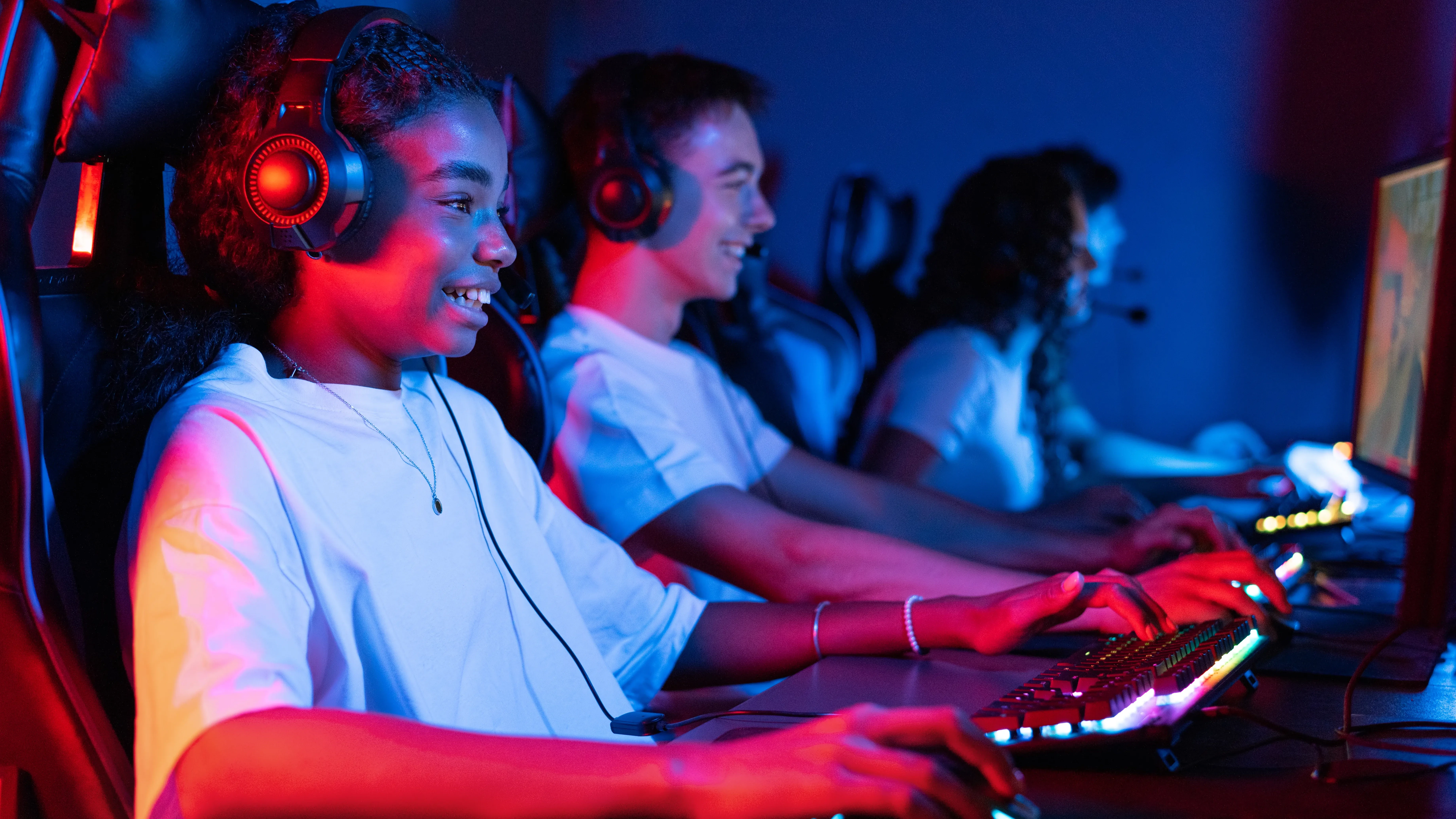
Cybersport: A New Reality for Teenagers and How Parents Can Understand It
In the digital age, cybersport, or eSports, has emerged as a prominent facet of youth culture, captivating millions of teenagers worldwide. Unlike traditional sports, which have long been celebrated for their physical and team-oriented aspects, eSports offers a unique blend of competition, strategy, and digital engagement. The growing passion among teenagers for eSports is fueled by various motivations and prospects. For many, eSports represents not just entertainment but also a viable career path. The landscape of eSports has transformed from casual gaming into a professional arena with substantial financial rewards, extensive training regimens, and global recognition. This evolution prompts the question: Is eSports truly the "future" of sports, and how can parents navigate this new reality to maintain a supportive and connected relationship with their children?
What is Cybersport?
eSports can be defined as organized, multiplayer video game competitions, particularly between professional players, individually or as teams. The main disciplines within eSports span a wide range of genres, including real-time strategy (RTS), first-person shooters (FPS), multiplayer online battle arenas (MOBA), and sports simulations. Titles like League of Legends, Dota 2, Counter-Strike: Global Offensive, and Fortnite have become household names within the eSports community.
The eSports industry is rapidly developing, marked by major tournaments that attract millions of viewers worldwide. Events such as The International, the League of Legends World Championship, and the Overwatch League not only offer substantial prize pools but also garner significant sponsorships from major brands like Intel, Coca-Cola, and Samsung. Professional teams such as Fnatic, Team Liquid, and Cloud9 have established themselves as key players, further legitimizing eSports as a serious competitive field.
Comparing eSports to traditional sports reveals several parallels and distinctions. Both require a high level of skill, strategic thinking, and teamwork. However, eSports emphasizes cognitive abilities and digital dexterity over physical prowess. Despite these differences, the professionalism and dedication seen in eSports mirror the commitment found in traditional athletic disciplines, reinforcing the notion that eSports is a legitimate and growing component of modern sports culture.
Psychological and Social Impact of Cybersport on Teenagers
Engaging in eSports has significant psychological and social impacts on teenagers. On the positive side, playing competitive video games can enhance cognitive functions such as problem-solving, critical thinking, and quick decision-making. The fast-paced nature of eSports demands rapid reactions and adaptability, which can translate into improved reflexes and mental agility.
Team-based eSports games promote collaboration and communication skills, as players must work together to achieve common goals. This fosters a sense of camaraderie and can improve social interactions both online and offline. Furthermore, participating in eSports can boost self-esteem and provide a sense of achievement as teenagers progress through ranks and achieve recognition in their chosen games.
However, there are potential risks associated with excessive involvement in eSports. Gaming addiction is a growing concern, as the immersive nature of video games can lead to excessive screen time and neglect of other responsibilities. Emotional burnout is another risk, stemming from the high-pressure environment of competitive gaming, which can result in stress, anxiety, and decreased motivation. Additionally, there is an impact on academic performance, as excessive gaming may interfere with study time and concentration.
Balancing these psychological and social factors is crucial for teenagers to reap the benefits of eSports while mitigating the risks.
Cybersport and a Teenager's Career - What Are the Opportunities?
eSports offers a plethora of career opportunities beyond being a professional gamer. The industry encompasses a wide range of professions, including game design and development, coaching, broadcasting, event management, marketing, and content creation. Positions such as team managers, analysts, streamers, and social media managers are integral to the functioning of eSports organizations.
Becoming a cyberathlete typically involves rigorous training and dedication. Teenagers aspiring to enter the professional scene often engage in daily practice sessions, join amateur leagues, and participate in online tournaments to hone their skills and gain visibility. Networking within the eSports community and seeking mentorship from established players can also provide valuable pathways to a professional career.
Education plays a significant role in supporting a career in eSports. Many institutions now offer programs in game design, digital marketing, and sports management tailored to the needs of the eSports industry. Additionally, specialized training academies and online courses focus on developing the technical and strategic skills required for success in eSports.
The dynamic environment of eSports provides teenagers with the opportunity to develop a diverse skill set, making it a viable and attractive career option within the modern job market.
What Should Parents Know?
For parents, understanding eSports is essential to support their children effectively. Recognizing that eSports is not a mere pastime but a significant part of youth culture is the first step toward fostering a supportive relationship. Parents should educate themselves about the different eSports disciplines, the structure of the industry, and the potential career paths it offers.
Supporting a child's interest in eSports involves encouraging their passion while ensuring a balanced approach to gaming. Parents should acknowledge the dedication and skills required to succeed in eSports and provide the necessary resources, such as access to gaming equipment, training facilities, and opportunities to participate in local tournaments.
Maintaining open communication is crucial. Parents should engage in conversations about their child's gaming experiences, understand their goals, and discuss the importance of balancing gaming with other aspects of life, such as education, physical activities, and social interactions.
Practical Advice for Parents: How to Talk About Hobbies and Set Boundaries
Navigating the world of eSports requires practical strategies to maintain a healthy balance between gaming and real-life responsibilities. Here are several practical tips for parents:
1. Open Communication: Initiate regular discussions about your child's gaming interests. Ask about their favorite games, teams, and what they enjoy about eSports. Understanding their passion helps in providing meaningful support.
2. Set Clear Boundaries: Establish rules regarding gaming hours, ensuring that gaming does not interfere with schoolwork, sleep, and physical activities. This helps in promoting a balanced lifestyle.
3. Encourage Other Interests: Support your child in pursuing other hobbies and activities alongside gaming. This diversification can prevent overreliance on gaming for entertainment and social interaction.
4. Monitor Online Interactions: Be aware of your child's online interactions to ensure a safe and positive gaming environment. Discuss internet safety and respectful behavior in online communities.
5. Use Parental Control Tools: Implementing parental control software can help manage and monitor gaming activities. Tools like Kroha provide features such as setting time limits, monitoring game usage, and blocking inappropriate content, thus assisting parents in maintaining oversight without being intrusive.
6. Promote Healthy Habits: Encourage regular breaks, physical exercise, and proper ergonomics during gaming sessions to prevent physical strain and mental fatigue.
Kroha, in particular, offers robust parental control options that allow parents to tailor the gaming experience to their family's needs. By using Kroha, parents can ensure that their child's gaming happens within set parameters, fostering a safe and balanced approach to eSports.
Conclusion
Cybersport has undeniably become a significant element of modern youth culture, offering both opportunities and challenges for teenagers. As eSports continues to evolve from a form of entertainment into a legitimate profession, it is essential for parents to understand this new reality to support their children effectively. By recognizing the value of eSports, maintaining open communication, setting healthy boundaries, and utilizing tools like Kroha for parental control, parents can foster a positive environment that allows their children to thrive in the world of eSports while maintaining a balanced and connected family life.
Recent articles
Holistic Development of Adolescents - The Jack Ma Effect
In today's rapidly evolving world, the holistic development of adolescents has become a paramount concern for educators, parents, and society at large. Holistic development refers to nurturing all aspects of a young person's growth—emotional, intellectual, social, and spiritual. Jack Ma, the renowned founder of Alibaba Group, stands as a compelling example of an influential figure whose philosophies and approaches to education and youth upbringing can significantly contribute to this comprehensive development. Drawing from Ma's insights offers valuable strategies for fostering well-rounded individuals equipped to navigate the complexities of the modern age.
Is Lemon8 Safe for Kids? A Parent's Guide
In today's digital age, social media platforms are an integral part of children's lives, offering both opportunities for learning and creativity, as well as potential risks. One such platform gaining popularity is Lemon8. As parents, it's crucial to understand the nature of these apps to ensure the safety and well-being of our children online. This guide delves into the features of the Lemon8 app, evaluates its safety for kids, and provides actionable recommendations for parents to navigate its use effectively.

